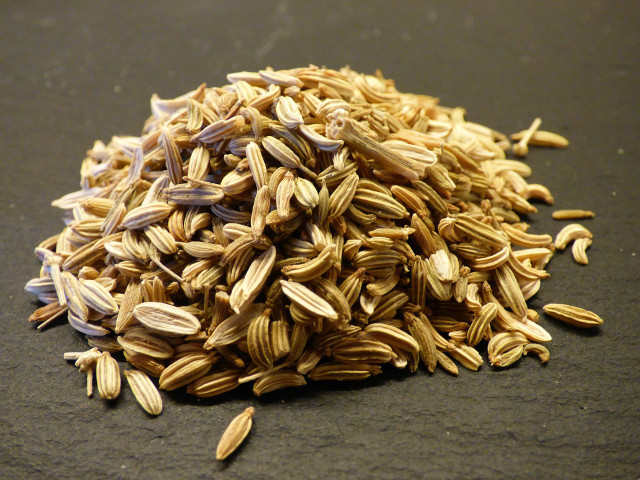
Fennel is one of the most important medicinal plants – the active ingredients are particularly concentrated in fennel oil. Here you can find out what effect fennel oil has and how best to use it.
In 2009, fennel was named medicinal plant of the year. The plant’s healing effects are particularly effective for gastrointestinal complaints and inflammation of the throat and pharynx. Due to its gentle effect, fennel is often used on children and infants.
Fennel oil is the concentrated extract from fennel seeds. It can also have a healing effect on various ailments.
What is fennel oil?
Fennel oil is extracted from the crushed seeds of bitter fennel by distillation: steam dissolves the essential oils from the fennel seeds. The water collects in a glass and the pure fennel oil floats on top.
The bitter fennel used for this is yellowish to greenish-brown and has a spicy and bitter taste. The valuable essential oil is found in the ripe fruits of the bitter fennel. It consists of around 60 percent anethole, and also contains fenchone.
You can buy fennel oil in pharmacies and sometimes in health food stores and drugstores. When buying, make sure it is organic if possible.
Effects of fennel oil

(Photo: CC0 / Pixabay / livama)
There is currently little scientific evidence on the effects of fennel oil. However, there are some indications:
- There is scientific evidence that fennel oil is about as effective in relieving pain during menstrual cramps as ibuprofen or similar painkillers. However, the research in this area is still relatively thin.
- According to a 2016 study, taking fennel oil can relieve the symptoms of irritable bowel syndrome and thus improve the quality of life of irritable bowel syndrome patients in the long term.
Several studies that have examined the effects of fennel seeds also come to the conclusion that the essential oils in fennel have, among other things, antioxidant, antibacterial and anti-inflammatory effects.
The essential fennel oil is also said to be beneficial for coughs and colds: it helps to loosen and remove stuck mucus. In the case of digestive problems such as flatulence or a feeling of fullness, the oil has an antispasmodic effect and promotes intestinal activity.
Fennel oil: Possible side effects

(Photo: CC0 / Pixabay / flomo001)
Fennel is usually taken as a tea as a home remedy. Pure fennel oil, on the other hand, only contains the essential oil of the fennel seeds. Since the ingredients are in a highly concentrated form, it is advisable to only take fennel oil under medical supervision and to discuss the dosage beforehand.
In addition, pure fennel oil is not suitable for children, infants and breastfeeding people. According to ApothekenUmschau, the essential oils can cause respiratory problems in infants and small children due to their strong smell.
Fennel oil and other fennel products can also cause health problems due to the estragole they contain. According to the Federal Institute for Risk Assessment (BfR), products containing estragole should not be consumed in excessive quantities. They are suspected of being carcinogenic and of altering the genetic makeup. The BfR therefore recommends that vegetables containing estragole should only be eaten in normal household quantities. Estragole is also found primarily in the essential oil of fennel. It is contained in significantly lower quantities in tea.
How to use fennel oil
Fennel oil is primarily suitable for external use in highly diluted form:
- For example, you can add five to ten drops of fennel oil to your bath water and take a fennel bath for 15 to 20 minutes. This is primarily intended to have a relaxing effect.
- Fennel oil is also used in aromatherapy. It is said to have a mood-enhancing and mentally strengthening effect. However, these effects have not been scientifically proven.
- If you have a cold, you can dissolve three drops of fennel oil in hot water and inhale the steam.
- If you have gastrointestinal problems, you can mix a drop of fennel oil with about 30 milliliters of carrier oil (for example almond, jojoba or olive oil) and massage your stomach with it.
- There are no general recommendations for the internal use of fennel oil. You should always discuss this with a medical professional.
Read more on Techzle\.com:
- Cutting fennel: How to clean fennel properly
- Heating olive oil: what you need to consider
- Sea buckthorn oil: effects, use and ingredients
Revised by Luise Rau
** marked with ** or orange underlined Links to sources are sometimes affiliate links: If you buy here, you are actively supporting Techzle\.com, because we then receive a small part of the sales proceeds. More information.